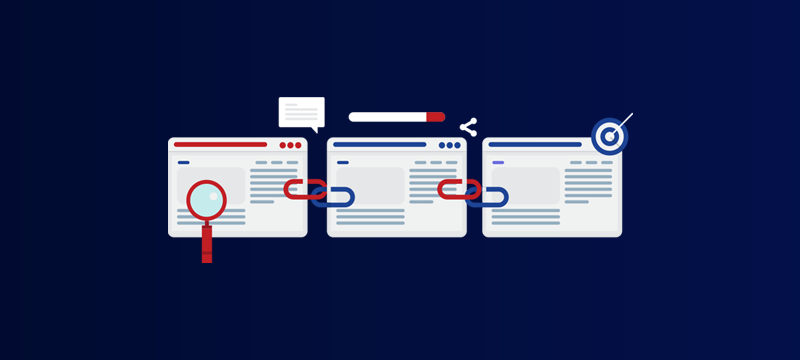Both external links to and outbound links from your website can improve your SEO, provided that they are to and from relevant and high-quality sites. Search engines, of course, are sophisticated enough to know the difference, which is why paying for links from poor quality sites, as well as being paid for them, can adversely affect your website’s ranking. There are, however, other factors that can affect the value of a link and in this post, we’ll look at them to help you improve your linking strategy.
The importance of linking to other websites
Link strategies have predominantly focused on trying to get other websites to link to yours. It’s one of the main driving forces behind outreach and guest blogging. However, research also shows that there is considerable SEO value in linking to other sites.
For a start, outbound links can let search engines better understand the topics of your website, helping them know its relevance for particular searches. While you may have concerns that they give users a backdoor to leave your website, they actually make your content more user-friendly, adding depth to the subject matter you are writing about. This is something valued by both the user and the search engine. What’s more, by demonstrating knowledge and pointing to evidence that supports your content, outbound links can also improve customer trust in your expertise.
Where should you place a link on a page?
Search engines give value to a link based on its position on the page. Unfortunately, this might not necessarily be the link you want to have most importance. The first link is given most value, so if you make several outbound links within a page, they have less influence on your SEO the lower down the list they get. Links within the content will also generally rank higher than links elsewhere on the page. If you want links to count, use fewer and put the most important one first if possible.
Where should you point inbound links?
If someone links to your website, you have little control over which page they link to. Often it will be a link to information that is relevant to the readers of their own content. For outreach, most website owners want to include links to their homepage. While this can benefit the ranking of the site as a whole, these links need to have value for the people who follow them. If your outreach article is about one of your products, sending them to your homepage may be disappointing, especially if they then need to search for the product you mention. This can lead to these users quickly abandoning your site and giving search engines the impression the content is low-quality.
Diversity over quantity
Having one site link to yours twenty times is less valuable than twenty sites linking to yours once. Quite simply, the diversity of websites that link to your site is an indication of how widespread your influence is and how widely your content is valued. Too many links from the same website, especially if they are always to the same page, can raise eyebrows with search engines about their legitimacy. For this reason, try to avoid other sites linking to you in footers or sidebars (unless they are adverts) as they will appear on every page.
Keeping links fresh
Search engines love fresh content because it is more up to date than older content and often more relevant. This is why you should constantly update old web pages and add new content to your websites.
The same principles apply to inbound links. If your site is no longer getting new links, it’s a message to search engines that your content might have lost its importance or relevance. The older the link, the less value it will have for your SEO. If you only have older links, it could begin to affect your website ranking over time.
To follow or not to follow
No-follow links are designed to stop bots from crawling them. As a result, search engines give them little value for SEO. This applies to both inbound and outbound links. This can be beneficial if your website has lots of adverts and affiliate links, or links to low-quality sites. No-following these will ensure that the ones which crawlers can follow are those that will benefit your website overall.
Anchor text
Finally, a quick word about anchor text. Anchor text is the text you convert into a hyperlink on your website. In the past, the practice has always been to include important keywords in your anchor text. However, just as keyword stuffing can adversely affect the ranking of your web pages, stuffing anchor text with keywords can do the same. Today, best practice is to use anchor text that is relevant to the link and which has meaning and value for your visitors. If this is the same as a keyword, that’s okay. However, it’s better to use anchor text that gives a clear indication of what the link is for, even if it doesn’t include a keyword. If possible try not to use the same anchor text over and over.
Conclusion
Inbound and outbound links continue to have value for SEO and can help improve the authority of your site and improve ranking. However, best practice continues to change and this may mean you need to make tweaks to your link strategy. Hopefully, the information here will have helped.
Visit our homepage for more information about our web hosting solutions.


